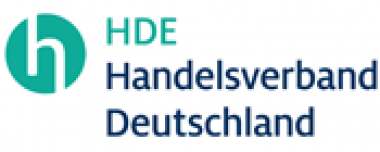Südwesttextil im Austausch mit Ministerium für Umwelt, Klima und Energiewirtschaft
Im Fokus des Gesprächs mit Staatssekretär Dr. Andre Baumann standen der Green Deal, Berichtspflichten, die Ökodesignverordnung und Chemikalienregulierungen.
Im Rahmen des Austauschtermins im Ministerium für Umwelt, Klima und Energiewirtschaft zeigte Südwesttextil Staatssekretär Dr. Andre Baumann anhand der vielfältigen Textilien auf, wie sich die Unternehmen der baden-württembergischen Textil- und Bekleidungsindustrie im Bereich Umwelt und Nachhaltigkeit engagieren. Umfangreiches Chemikalienmanagement, freiwillige Nachhaltigkeitsberichte, Zertifizierungen und Maßnahmen zur Verringerung des CO2- und ökologischen Fußabdruckes stehen ebenso auf der Agenda der Unternehmen wie Investitionen in Projekte im Bereich Kreislaufwirtschaft, Recycling, Stoffströme und die Pflege globaler, langjähriger Partnerschaften mit Fokus auf Transparenz.
Mit Blick auf den Green Deal sehen sich aber inzwischen viele Unternehmen mit einer Flut an Regulierungen konfrontiert. Anhand eines fiktiven mittelständischen Unternehmens erläuterte Südwesttextil, wie hoch der Aufwand für die Datenerhebung und die Berichtspflichten ausfällt.
Südwesttextil-Präsident Arved Westerkamp betonte: „Unsere überwiegend kleinen und mittelständischen Mitgliedsunternehmen müssen viel Personal vorhalten. Die aktuell angekündigte Masse an Regulierungen kann zukünftig nicht ohne eigene Abteilung bewältigt werden. Gleichzeitig gibt es große Unsicherheit zu den geplanten Umsetzungen und das blockiert in wirtschaftlich sehr herausfordernden Zeiten Ressourcen. Wenn gleichzeitig Rekordmengen an asiatischen Produkten ohne Prüfung der Standards auf den europäischen Markt gelangen, überspannt das den Bogen für viele und die Bereitschaft in den Standort zu investieren, sinkt. Der Umfang der Regulierungen und Bürokratie stellt das Überleben ganzer Wirtschaftszweige auf die Probe. Für unsere Branche können wir sagen, dass Kompetenzen und Lieferkettenstufen drohen unumkehrbar ins Ausland abzuwandern.“
Staatssekretär Dr. Andre Baumann erklärte, dass der Green Deal in seinem Grundgedanken richtig und wichtig sei. „Wir sehen zugleich auch die Herausforderungen für unsere Unternehmen. Daher setzen wir uns dafür ein, die Anforderungen des Green Deals an die Wirtschaft auf ein praktikables Maß zu begrenzen und den Bearbeitungsaufwand niedrig zu halten. Uns liegt viel daran, Baden-Württemberg als attraktiven Unternehmensstandort zu sichern.“
Man müsse in der Europäischen Union (EU) gemeinsam an einer zukunftsfähigen Strategie für alle Industrien in der EU arbeiten. Dabei gelte es auch, europäische Standards für Importe zu gewährleisten und Verstöße gegebenenfalls zu sanktionieren. Neben ausreichend Personalressourcen sei daher heute vor allem wichtig, dass die Marktüberwachungsbehörden die rechtlichen Möglichkeiten bekommen, wirksam, effizient und schnell die erforderlichen Maßnahmen durchzusetzen.
Green Deal Bürokratie Südwesttextil Verband der Südwestdeutschen Textil- und Bekleidungsindustrie Südwesttextil e.V.
Verband der Südwestdeutschen Textil- und Bekleidungsindustrie Südwesttextil e.V.

































